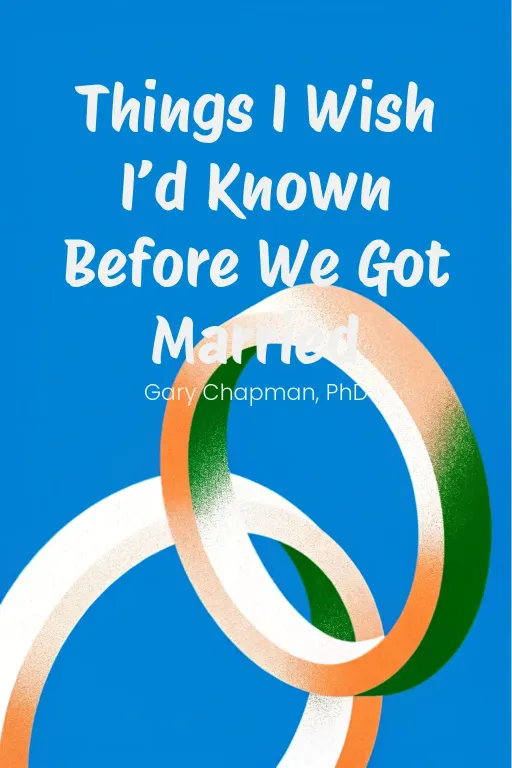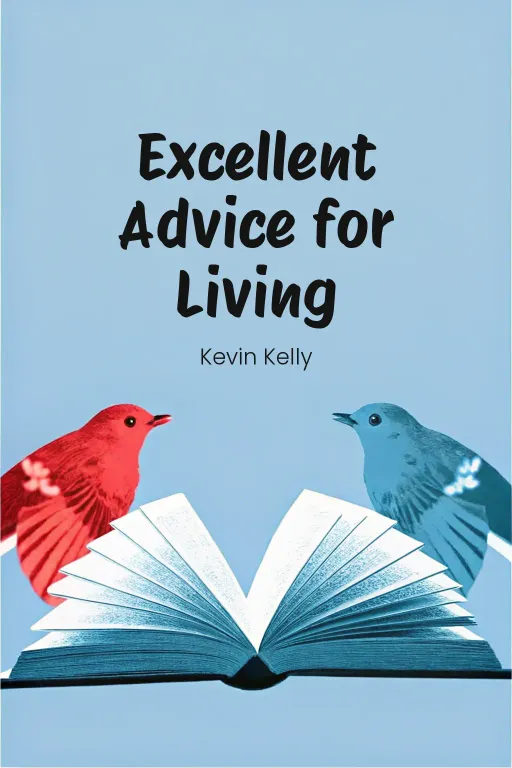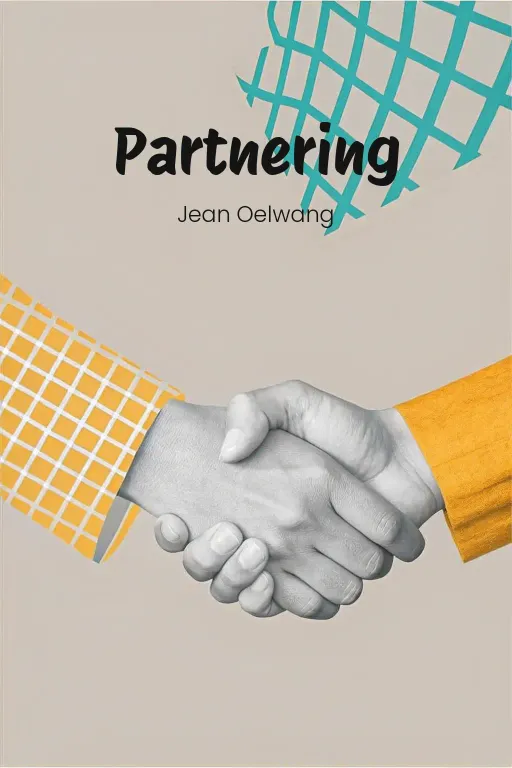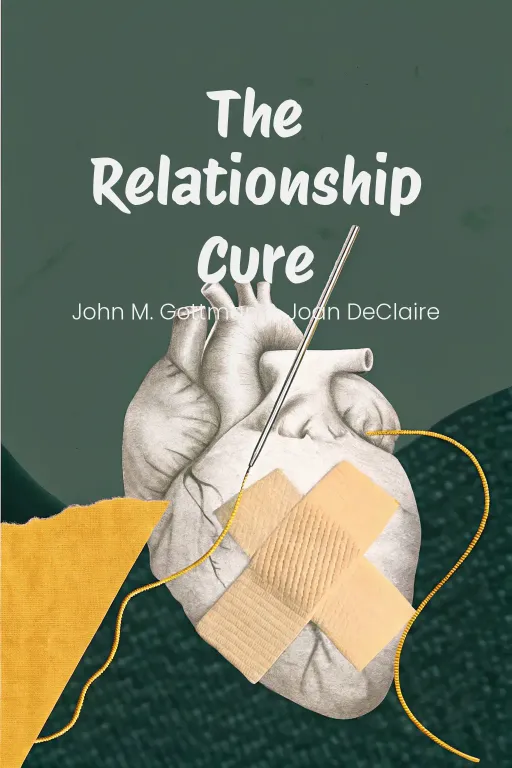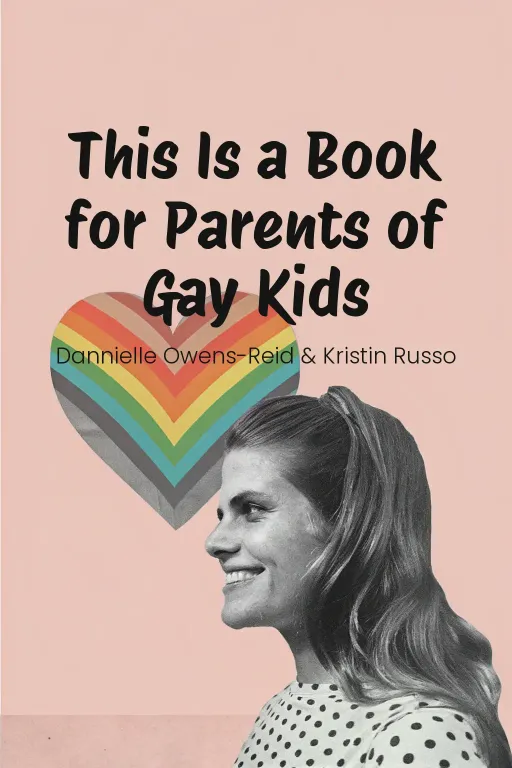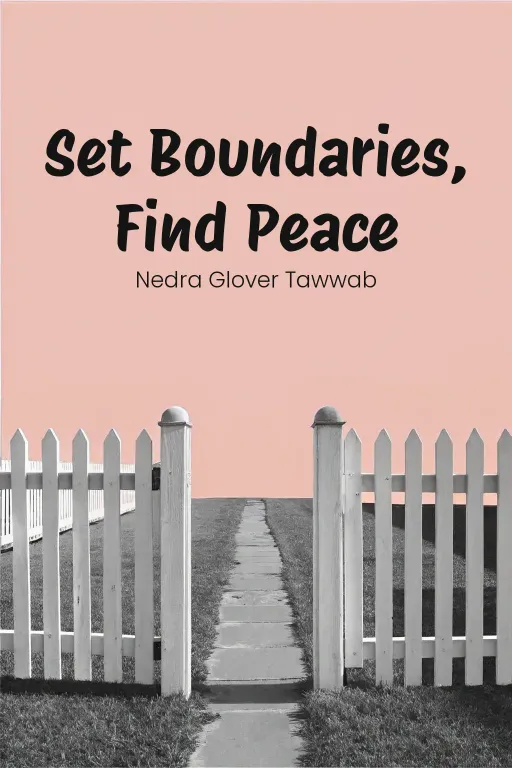
Marriage SOS: Beyond the Honeymoon
Podcast by The Mindful Minute with Autumn and Rachel
Introduction
Part 1
Autumn: Hey everyone, welcome back! Today we're tackling a big one: what “really” makes a marriage work? It's a crucial conversation, especially if you're in a serious relationship or thinking about one. Rachel: Yeah, because let's be real, love songs and rom-coms only get you so far. The initial spark is fun, sure, but what happens after the credits roll? The happily-ever-after montage always seems to leave out the mundane and the struggles. Autumn: Exactly! And that's why Gary Chapman's Things I Wish I'd Known Before We Got Married is so spot-on. It moves beyond the Disney version of love and dives into the practical skills you need to actually build a strong, lasting marriage. It's all about bridging that gap between head-over-heels and everyday partnership. Rachel: So, less "fairy tale," more "work in progress," huh? What's Chapman's core point, then? What's the secret sauce here? Autumn: He argues that love, by itself, isn't enough. You need foundational skills that couples often overlook. Things like how to communicate effectively, resolve disagreements constructively, manage money together, and even understand how your personalities and families affect your relationship. Rachel: Okay, so we're talking about assembling a marital toolkit, basically. What specifically are we digging into in this episode? Autumn: Great analogy! Think of this episode like building a house. First, we'll lay the emotional foundation by understanding the two stages of love in marriage – that initial romantic phase versus the deeper, lasting connection. Then, we'll look at the "architectural influences" – how your upbringing and personalities shape the relationship's design. Finally, we'll focus on the practical stuff, those crucial fixtures like conflict resolution and financial balance, that keep everything standing strong. Rachel: Emotions, the baggage we bring, and then the practical skills. Sounds like building a home you might actually want to live in. So, where do we start hammering?
The Nature of Love in Marriage
Part 2
Autumn: Okay, let's dive in, starting with the basics: the emotional bedrock of love in marriage. Chapman makes a really interesting point, which is that “being in love,” that whole magical feeling, isn't actually a strong enough foundation for a lifelong partnership. He breaks romantic love down into two stages—euphoric and intentional—and understanding the difference is key. Rachel: Right, so the “euphoric” stage, that's the movie stuff, isn't it? Couples are practically floating, they can't stop grinning, and everything just works. It's like the relationship is running on autopilot, fueled by pure infatuation. Autumn: Absolutely. Chapman describes it as thrilling, even a little blinding. You're less aware of your partner's flaws, everything feels easy, and showing affection comes naturally. It’s like we're wired to see only the good in that phase. Rachel: Let’s be real, it’s nature’s little trick to get us to commit, isn't it? But why isn’t that enough? I mean, if it’s built-in, shouldn’t that carry us through? Autumn: That's a great question, Rachel. Chapman argues that this euphoric phase is temporary; it usually fades within a couple of years. And while it's exciting, it’s not realistic to maintain that level of emotional intensity forever. Rachel: Temporary, huh? So, the sparkle fades, and suddenly you’re thinking, "Wait a minute, who are you?" No wonder he calls it a trap—people get caught off guard. Autumn: Exactly! Couples often mistake that loss of initial infatuation as a sign that they picked the wrong person. Chapman stresses that falling in love isn’t a choice, but staying in love is. It takes real, conscious effort to move into that second stage, which is where you build a lasting connection. Rachel: Intentional, huh? So, what does that second stage really look like? Are we talking about tackling bills and chores together? Autumn: In a sense, yes—it's about navigating the practical side of life as a team. This stage requires deliberate commitment. You become more aware of each other's differences, flaws, and quirks. Communication, respect, and compromise become essential. Chapman puts it beautifully: love shifts from being purely emotional to being a conscious decision, a deliberate act of will. Rachel: Right, but isn’t this where things fall apart for most people? I mean, most couples go in riding that initial high. How do you prepare for reality? Surely that woman Chapman talks about, Jan, the one who thought love would magically fix things, isn’t the only one walking into marriage with rose-colored glasses. Autumn: You're absolutely right, Rachel. That’s why having realistic expectations before you get married is so important. Chapman's story about Jan really highlights how common it is to believe love alone can sustain a marriage. But without preparation, facing the realities of that second stage can be a real shock. You need the right tools—open communication and a willingness to accept each other’s differences. Rachel: Speaking of differences, let's get into those, because they sound like a constant irritant. Do all couples inevitably hit major disagreements, or are some just luckier? Autumn: Disagreements are inevitable, Rachel – it’s part of being two separate people. Chapman shares a great example with Alex and Maria. They started their marriage in the euphoric stage, and their differences – like Alex being an impulsive spender and Maria being super frugal – seemed small at first. But once the honeymoon phase ended, those issues blew up into serious fights that affected their finances and their emotional connection. Rachel: Oh, the classic spender vs. saver battle. Let me guess: they tried to “win” instead of actually solving the problem? Autumn: Precisely. At first, they just blamed each other – Maria thought Alex was irresponsible; Alex felt judged. But in counseling, they learned to approach those issues as a team, not as opponents. They started having regular finance check-ins, working together on budgeting and setting priorities. It's a perfect example of moving into that intentional stage of love. It wasn't just about surviving the challenge; it was about growing stronger from it. Rachel: So, the intentional stage isn't about dodging conflict; it’s about learning to deal with it together. Got it. But how do couples even start being collaborative when they’re already in the middle of constant arguments? Autumn: Great question. Chapman advises starting with open communication – simple, regular check-ins that create space to understand each other. He also emphasizes learning your partner's love language. When you understand how your partner expresses and receives love, you can handle issues in a way that really resonates with them emotionally. Rachel: Okay, quick question here: Love Languages? How do they help when say, one person wants to talk things through, but the other wants to...I don't know, storm off? Autumn: Love languages help couples feel valued and understood. That can ease tension, even during a fight. For example, if Maria's love language was "words of affirmation," Alex could verbally express how sorry he is and what he intends to do better. That might mean more to her than him just doing the dishes. It’s about figuring out what makes your partner feel appreciated, so you can rebuild the connection after disagreements. Rachel: So, instead of just blurting out "I love you," you figure out how to show it. Sounds like the psychological equivalent of learning a foreign language! Autumn: That’s a perfect analogy, Rachel. Chapman emphasizes that staying in love is about intentionality – making the constant choice to nurture the relationship. It’s not always glamorous, but it’s incredibly rewarding when couples embrace it. Rachel: Alright, we’ve got two stages of love, strategies for bridging the gap, and a roadmap for avoiding the “this isn’t what I signed up for” trap. I think I’m sold on the intentional stage being where the real magic happens—minus the butterflies, of course.
Understanding Influences on Behavior
Part 3
Autumn: Following our discussion on love's phases, it’s logical to explore how external factors and our personal histories affect marital dynamics. It's so interesting because this part of Chapman's work transitions us from the internal landscape of love to the behavioral patterns shaped by the outside world. This really paves the way for actionable strategies couples can use to create a harmonious relationship. Rachel: So, we're moving beyond just talking about feelings and getting into why people behave the way they do. Is this where the old saying about “marrying the whole family” comes into play? Autumn: Precisely, Rachel. Chapman stresses that our upbringings and family environments profoundly influence our behaviors, attitudes, and the patterns we bring into our marriages. Whether we like it or not, there's truth to those phrases, "Like mother, like daughter" or "Like father, like son." Rachel: And here I was thinking that once you get married, your in-laws only influenced your holiday plans. You're suggesting these family dynamics run a little deeper than that? Autumn: Definitely. Chapman argues that the communication styles, the coping mechanisms, and even the conflict-resolution approaches we observed in our families tend to shape how we handle our relationships. He shares a case study about a man who grew up with a very controlling father. Without realizing it, this man might unconsciously mimic his father's behavior in his marriage—tightly managing finances, dominating conversations, or making decisions without consulting his wife. Rachel: Okay, that’s not really a conscious choice, right? No one wakes up thinking, "I want to be as controlling as my dad." Autumn: Exactly, Rachel. These behaviors often operate below the surface until they cause problems. In Chapman’s case study, the man only recognized his controlling tendencies when his wife began to feel overwhelmed and unheard. This was a turning point, highlighting that he needed to become aware of his behavior so he could break that cycle. Rachel: So, once this is spotted, what's next? Do they just have a heart-to-heart and magically fix things? Autumn: I wish it were that simple! Awareness is just the initial step. Chapman recommends openly communicating and sometimes even seeking professional help to unpack these patterns. In the case study, this man started intentionally adopting more egalitarian behaviors—like including his wife in important decisions, and actively seeking her input on family matters. Over time, these intentional efforts built trust and mutual respect. Rachel: Okay, so self-awareness leads to change. Does that mean couples need to sit down before getting married and analyze every single argument their parents ever had? Autumn: Not every single argument, Rachel, but Chapman does encourage couples who are considering marriage to think about how their family patterns might impact their relationship. He suggests asking questions like, "What did you admire about your parents’ relationship?" and "What do you hope to do differently?" These aren't just about finding potential red flags. They can also equip couples to actively decide what they want to replicate or adjust in their own relationship. Rachel: Okay, that feels helpful for the "big picture" stuff, but what about the daily little annoyances that don’t come from family stuff? Like, just personality clashes? Surely those don't need a deep dive, right? Autumn: You'd be surprised how much those little differences can add up, Rachel. Chapman argues that personality traits—whether they're innate or learned—can really affect how couples interact. Think about differences like optimism versus pessimism, introversion versus extroversion, or being organized versus being spontaneous. These might seem like they complement each other at first, but they can lead to frustration if they're not handled well. Rachel: And let me guess, Chapman has another case study to share? Autumn: Absolutely. He describes a classic "morning person versus night owl" dynamic. One person is up with the sun, ready to go, and the other is dragging and prefers to talk about things when it’s dark out. At first, it might seem cute or quirky, but over time, it can create misunderstandings and unmet expectations. Rachel: So, the morning person feels ignored when they're full of energy at breakfast, and the night owl feels ambushed. Sounds fun for no one. Autumn: Exactly, Rachel. Chapman suggests compromise is key. In this case, the morning person could hold off on non-essential conversations until later, while the night owl might set aside one evening a week for activities that suit their partner's earlier schedule. These little tweaks help both people feel valued and respected. Rachel: Okay, compromise—I’m on board with that. But how do couples figure out what needs to be compromised on? Autumn: Great question. Chapman suggests using specific exercises and tools to explore these differences. For instance, there are exercises with guided discussions where partners reflect on questions like "What communication styles did you see growing up?" or "How was conflict dealt with in your family?" These insights can help couples have deeper conversations than just surface-level frustrations. Rachel: I’m guessing it's not just chit-chat. Are there real tools for pinpointing these differences, other than just talking? Autumn: Definitely. Chapman suggests personality assessments or premarital counseling questionnaires to pinpoint traits that might affect interactions. For example, if one person is super organized and the other prefers a more laid-back, flexible approach, these assessments can highlight those tendencies. That makes it easier to talk about potential sticking points without placing blame. Rachel: So, essentially, you're creating a user manual for your partner. That's helpful—unless there’s, you know, assembly required. Autumn: <Laughs> Exactly, Rachel! Another thing Chapman suggests is role-playing potential conflicts. Say one person tends to save money and the other tends to spend—they could act out a conversation about buying something expensive, without actually being in the heat of an intense discussion. Role-playing provides a space to practice clearly articulating your perspectives and working together to find solutions. Rachel: So, instead of going at it like it's a courtroom drama, you’re rehearsing teamwork. I like it—less jury, more duet. Autumn: Exactly! Chapman also stresses that we shouldn’t ignore the positive influences from our families. While we often talk about breaking negative cycles, there are family habits worth celebrating and passing on. Rachel: And, I’m guessing there's a heartwarming case study about this too? Autumn: Of course. He shares the story about a woman whose family always had open conversations at dinner, where everyone shared their thoughts and feelings. She brought this tradition into her marriage, encouraging nightly check-ins with her husband. Even though he was a little hesitant at first, he started to value these conversations, and they became a key part of their emotional closeness. Rachel: So, even family habits that aren’t that exciting on the surface can become a hidden strength for a relationship. Definitely better than, say, inheriting a tendency to micromanage. Autumn: Absolutely. The key is that understanding the influences on your behavior—whether from family patterns or from your personality—helps couples approach their relationship with more empathy and purpose. By recognizing these things, you can turn potential friction into opportunities for growing together. Rachel: Bringing it all together, it seems like Chapman’s philosophy boils down to this: don’t just let love happen—actively shape how it unfolds.
Practical Strategies for Marital Success
Part 4
Autumn: So, now that we’ve established how behavior is influenced, let’s dive into the practical strategies for managing conflict and communicating better. Chapman takes these abstract ideas and turns them into real tools that couples can use to tackle challenges and build a healthier relationship. Rachel: Okay, so we’re moving from understanding why we are the way we are to how to actually make things work. I like that. Theory is useless without action, right? So, what's the first big thing he suggests? Autumn: Chapman really emphasizes conflict resolution, and he reminds us that conflict is inevitable – no surprises there. But it’s all about how you handle it. Does it drive you apart, or does it bring you closer? He encourages a constructive, not combative, approach. Viewing disagreements as, get this, opportunities for growth. Rachel: “Opportunities for growth?” Right, but when you’re in the middle of a fight about, say, who used up all the coffee, how are you supposed to remember that it’s a “growth opportunity?” That sounds easier said than done. Autumn: Well, that’s where techniques like “listening times” come in. Chapman talks about this couple who were always fighting about how to spend weekends. One wanted family gatherings all the time. The other needed quiet time to recharge. Every conversation turned into accusations and hurt feelings until they started structuring their communication. Rachel: When you say “structured,” I assume you don’t mean just yelling louder? Autumn: Nope, not at all. They agreed to take turns speaking, without interruption, really explaining their perspectives before even trying to compromise. For example, the family-oriented partner shared how important those connections were to them emotionally. The other partner explained how overwhelming back-to-back events felt. Really listening helped them see the good intentions behind each other’s preferences. Rachel: Right, but I'm guessing they didn't just walk away perfectly happy singing kumbaya? Autumn: Of course not, but they did find a compromise. They decided one weekend a month would be strictly for family, while the other weekends were more flexible. Not perfect, but it was a partnership. And that’s Chapman’s whole point. Productive conflict resolution builds trust and turns disagreements into deeper understanding. Rachel: That sounds like a win-win. Why do you think these structured techniques work so well, anyway? Autumn: They work because they shift the focus from winning the argument to strengthening the connection. Listening, for instance, builds empathy. People want to feel heard, not attacked, and when that’s the priority, you create room for collaboration instead of competition. Rachel: Okay, so that's managing arguments. What about something scarier, like finances? I seem to remember Chapman saying money is a huge battleground for couples. Autumn: Absolutely. Money is so emotional, right? It's tied to security, independence, even identity. Chapman talks about this couple who clashed over financial habits. One was a compulsive saver, almost frugal to a fault. The other enjoyed spontaneous spending. That’s where the “10-10-80 Plan” comes in. Rachel: The “10-10-80 Plan?” Sounds like a workout routine for your bank account. Tell me more. Autumn: <Laughs> In a way, it is. Ten percent of their income goes to savings, which provides that security for the saver. Another ten percent goes to charitable giving, which aligns with their shared values and gives a sense of fulfillment to both. The remaining 80 percent is for daily expenses and lifestyle stuff. It’s a simple framework that reduces tension by addressing individual needs and shared goals. Rachel: I like that it's concrete. But what if your numbers don’t work out so neatly? What about debt or wildly different incomes? Autumn: Great questions! Chapman does say you need to customize these plans to fit your unique situation. The key is transparency, making sure both partners have a clear view of the finances. Even with debt, being open about income, responsibilities, and priorities helps create teamwork instead of resentment. Rachel: Makes sense. We've tackled arguments and tamed the checkbook. How about something even trickier, like spirituality? That feels super sensitive. Personal beliefs are so ingrained, how do you reconcile those? Autumn: It is a sensitive topic, which is why Chapman approaches it with respect and nuance. He tells the story of Jill and Matt, a couple who started out spiritually aligned, but drifted apart over time. One leaned toward traditional practices, the other developed a more individual faith. Rachel: I can see that causing tension. When something that foundational shifts like that, how do you even start the conversation? Autumn: With openness and mutual respect. Jill initially felt like Matt's shift away from church was a betrayal. But instead of letting resentment build, they went to counseling. They explored what spirituality meant to each of them, individually and as a couple. Jill realized Matt still had deep beliefs, and Matt recognized how much Jill valued shared spiritual rituals. They found a middle ground by participating in both community-based and personal practices. Rachel: That's some impressive compromise. But what if they hadn't been able to find common ground? Is it sometimes just about agreeing to disagree? Autumn: That can happen, yes, but the goal should always be creating an inclusive environment. Chapman says it's about understanding, not uniformity. Honoring individual beliefs while discussing how they might translate into shared traditions, especially when you think about future generations. Rachel: Okay, so, if I'm hearing you right, Chapman's strategies pivot on one core idea: don't ignore your differences. Whether it's conflict, money, or values, lay it all out on the table, talk it through, and build something new together. Am I getting this right? Autumn: Exactly! Marriage isn't just about blending two lives—it's about navigating inevitable differences with intention and collaboration. With these practical strategies, couples can build deeper connections and lasting harmony, hopefully. Rachel: And maybe argue a little less about the thermostat while they’re at it.
Conclusion
Part 5
Autumn: Okay, let’s bring this podcast episode to a close. We really dug into some great insights from Gary Chapman's “Things I Wish I'd Known Before We Got Married”. He starts with the whole idea of two phases of love, right? That initial, exciting, head-over-heels feeling is amazing, but it's really the “intentional” phase – the one where you put in the effort, you grow together, and you truly understand each other – that makes a marriage strong in the long run. Rachel: Exactly. And then we explored how our families and personalities shape us -- habits we picked up, or just the way we're wired. These things “will” surface in your marriage, no question. So, the key is to recognize them, talk about them, and if needed, work together to create new ways of behaving. Autumn: Absolutely, and Chapman's practical advice – whether it's dealing with disagreements, handling money, or even just your shared beliefs – shows that strong marriages aren't about “being” perfect. It's about being “intentional”. Rachel: So, for our listeners, here’s a thought: don’t just assume that love is enough. Really get to know yourself, understand your partner, and prepare for the journey. Whether you’re just starting to date, engaged, or you've been married for years, these principles are, you know, your toolkit to build a long-lasting relationship. Autumn: That's so well said, Rachel. I think we should leave our listeners with this: love is really a daily decision. It's not “just” about feelings -- it's about what you “do”. Choose to communicate, to compromise, and to grow as a couple. Rachel: And if that means learning your partner’s love language or skipping that rare holographic Charizard, well...that’s just part of being a true partner. Autumn: <Laughs> Exactly! Well, thanks everyone for tuning in today. Until next time, here's to building stronger, happier relationships, one step at a time. Rachel: Catch you next time!


